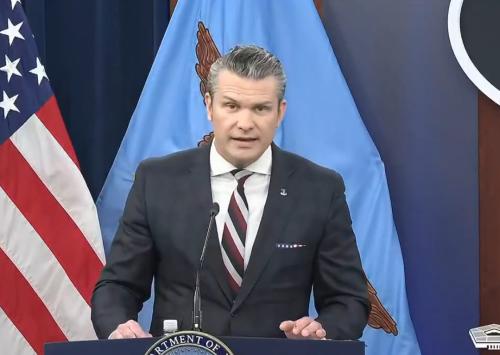New Delhi, June 26 (IANS) Pakistan has been hit with massive losses to its GDP worth $38 billion because of the Financial Action Task Force's (FATF) decision to retain the country on its grey list since 2008, according to a research paper published by the Islamabad-based independent think-tank, Tabadlab. The paper titled, "Bearing the cost of global politics -- the impact of FATF grey-listing on Pakistan's economy", has been authored by Naafey Sardar. This comes against the backdrop of a fresh grey listing tag for Pakistan. Pakistan was retained on the grey list, or list of countries under "increased monitoring", as the Paris-based UN watchdog judged it deficient in prosecuting the top leadership of UN Security Council-designated terror groups. The list includes Lashkar-e-Taiba, Jaish-e Mohammad, Al Qaeda and the Taliban. As per the paper, results suggest that FATF grey-listing, starting in 2008 and till 2019, may have resulted in cumulative real GDP losses of approximately $38 billion. Moreover, estimates indicate that a large proportion of this response (58 per cent) was driven by reduction in consumption expenditures (both household and government). Exports and inward foreign direct investment are also partially responsible for this decline in GDP, with associated cumulative losses of $4.5 billion and $3.6 billion respectively. These results point to the significant negative consequences associated with FATF grey-listing. The estimates from this paper point to the significant negative implications of FATF's grey listing for Pakistan, thus emphasising the need for policymakers to comply with the FATF on the adoption of AML/CFT legislation to avoid future economic losses, it argued. With the FATF's latest action, Pakistan, even after elargely completing' 26 of the 27 targets, will remain in the grey list for at least another year and deliver on seven new parallel action points to address deficiencies in its Anti-Money Laundering/Combating the Financing of Terrorism (AML/CFT) regime, The Dawn said in a report. The watchdog said in a statement that since June 2018, when Pakistan made a high-level political commitment to work with the FATF and APG to strengthen its AML/CFT regime and to address its strategic counter terrorist financing-related deficiencies, the country's continued political commitment has led to significant progress across a comprehensive CFT action plan. The FATF recognises Pakistan's progress and efforts to address these CFT action plan items and notes that since February 2021, Islamabad has made progress to complete two of the three remaining action items on demonstrating that effective, proportionate and dissuasive sanctions are imposed for TF convictions and that the country's targeted financial sanctions regime was being used effectively to targeted terrorist assets. Pakistan has now completed 26 of the 27 action items in its 2018 action plan. "The FATF encourages Pakistan to continue to make progress to address as soon as possible the one remaining CFT-related item by demonstrating that TF investigations and prosecutions target senior leaders and commanders of UN designated terrorist groups." FATF said Pakistan should continue to work to address its strategically important AML/CFT deficiencies, namely by: (1) enhancing international cooperation by amending the MLA law; (2) demonstrating that assistance is being sought from foreign countries in implementing UNSCR 1373 designations; (3) demonstrating that supervisors are conducting both on-site and off-site supervision commensurate with specific risks associated with DNFBPs, including applying appropriate sanctions where necessary; (4) demonstrating that proportionate and dissuasive sanctions are applied consistently to all legal persons and legal arrangements for non-compliance with beneficial ownership requirements; (5) demonstrating an increase in ML investigations and prosecutions and that proceeds of crime continue to be restrained and confiscated in line with Pakistan's risk profile, including working with foreign counterparts to trace, freeze, and confiscate assets; and (6) demonstrating that DNFBPs are being monitored for compliance with proliferation financing requirements and that sanctions are being imposed for non-compliance. Jurisdictions under increased monitoring are actively working with the FATF to address strategic deficiencies in their regimes to counter money laundering, terrorist financing, and proliferation financing. When the FATF places a jurisdiction under increased monitoring, it means the country has committed to resolve swiftly the identified strategic deficiencies within agreed timeframes and is subject to increased monitoring. This is often externally referred to as the "grey list". The FATF and FATF-style regional bodies (FSRBs) continue to work with the jurisdictions below as they report on the progress achieved in addressing their strategic deficiencies. The watchdog calls on these jurisdictions to complete their action plans expeditiously and within the agreed timeframes. The FATF welcomes their commitment and will closely monitor their progress. It does not call for the application of enhanced due diligence measures to be applied to these jurisdictions, but encourages its members and all jurisdictions to take into account the information presented below in their risk analysis. The FATF identifies additional jurisdictions, on an on-going basis, that have strategic deficiencies in their regimes to counter money laundering, terrorist financing, and proliferation financing. A number of jurisdictions have not yet been reviewed by the FATF or their FSRBs, but will be in due course. In October 2020, the FATF decided to recommence work, paused due to the Covid-19 pandemic, and to identify new countries with strategic AML/CFT deficiencies and prioritise the review of listed countries with expired or expiring deadlines of action plan items. Albania, Barbados, Botswana, Cambodia, Cayman Islands, Ghana, Jamaica, Mauritius, Morocco, Myanmar, Nicaragua, Pakistan, Panama, Uganda, and Zimbabwe have had their progress reviewed by the FATF since February 2021. Following review, the FATF now also identifies Haiti, Malta, Philippines, and South Sudan.
Pakistan remains in FATF grey list, hit by $38B loss
- by Rinku
- June 26, 2021 2 minutes

Pakistan Flag. (Photo Courtesy: Twitter)











